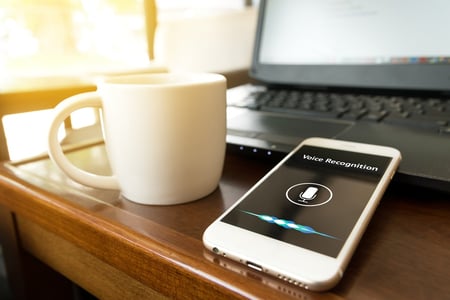The future looks rosy for the hospitality industry. Growth forecasts continue to be strong. Tourism numbers are booming worldwide. And as travel becomes easier, swifter and more reliant on technology, hotels are striving to keep pace. 
“What’s happened over the last three to five years, and what we expect over the next two or three, are unlike what we’ve seen in this industry before,” Heather Balsley, SVP of global marketing mainstream brands for InterContinental Hotels Group, said at the 2018 Hunter Hotels Conference. Here’s a look at some hospitality trends that promise to reshape the industry.
The ultra-personalized guestroom
The guestroom of the future knows every guest’s preferences. As you walk in the room, “you’ll have the temperature you like, streaming music you like,” Jonathan Wilson, VP of product innovation and brand services for Hilton, said at HHC. “The TV will be on with your Netflix account. It will all be seamless. You’ll even be able to control the room’s colors every stay.” This isn’t idle imagination; Hilton is already deploying rooms that allow guests to use the Hilton Honors app to set and save preferences for things like temperature, lighting and even displaying personal artwork and photographs in digital frames.
New guestroom gadgets
In-room tablets are just the beginning. As part of the move toward connected guestrooms that rely on the Internet of Things, hotel chains are experimenting with all kinds of high-tech gadgets in rooms. These include:
- A “shareable canvas” shower door: Know how your best ideas always appear — and then disappear — in the shower? In 2017, Marriott Hotels Irvine unveiled shower doors with touch-sensitive glass that records anything you write in the steam. “Technology built into the shower door then sends the fresh idea to the guest’s email, where they can share it via email or social to enable further brainstorming,” Marriott says.
- Sleep-enabling tech: Nightingale, a small device that mimics a standard outlet cover, masks disrupting sounds like TVs and traffic with a “sound blanket.” Nightingale, which is being tested by several hotel chains, claims to help guests fall asleep 38 percent faster and reduce instances of being woken by noise.
- Voice control: Hotel chains are using Amazon’s Alexa and similar voice-recognition technology in guestrooms to allow guests to control room conditions; request room service; set reminders and more.
Walls coming down — literally and figuratively
In this space, we’ve talked about the ways that hotels can boost revenue by hosting social hours, performances and other events designed to draw in the locals. This hospitality trend will only continue, experts say, as the traditional separation between hotels and their neighborhoods begins to fade.
Another perennial topic of debate — how hotels can compete with sharing-economy platforms like Airbnb — may become moot as the entire concept of a “hotel” changes. Instead of a hundred rooms in a single building, a hotel may instead remotely operate and manage the same number of units spread out across an entire city.
Renewed emphasis on face-to-face interaction
LG’s Porter Robot carries luggage, handles in-room check-in, and checks guests out. Savioke’s robotic butlers are delighting hotel guests by delivering food, clean laundry and sundries at Chicago’s Hotel EMC2 and the Renaissance Las Vegas. Even as robots — along with AI chatbots, mobile check-in and other innovations — become standard fixtures at hotels, hotel operators shouldn’t see them as opportunities to replace humans entirely.
“Even consumers who embrace technology may worry that companies are exploiting them through so-called personalization. Hoteliers need to balance digital ingenuity with a human touch,” writes Sean O'Neill for Skift. That means hotel staff must look guests in the eye upon arrival, welcome loyalty members, and be empowered to help guests in any way possible.
At Marriott’s M-Beta hotel, a hotel innovation incubator in Charlotte, N.C., mobile check-in is standard and there’s no front desk. But guests aren’t left to their own devices. Instead, the arrival team is stationed at island tables, ready to assist guests who need help. “What I love about that is that it gives our hosts the ability to engage further with them later,” General Manager Crissy Wright tells Hamilton Beach Commercial. “I feel like it’s less transactional.” That’s the future of hotels: an experience made seamless by technology and warmed by the human touch.
How is your hotel adapting to the needs of future travelers? Tell us about it and we may showcase your company in a future post.


